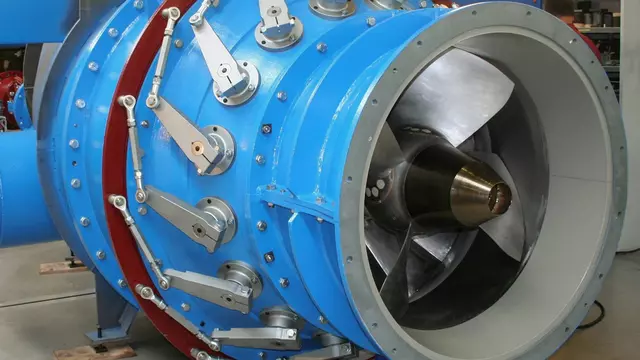
A better life with the power of water
A stable power supply is not a matter of course in the Ruvuma region in south-western Tanzania. The small hydroelectric plant Tulila on the Ruvuma River is powered by two Kaplan turbines by Voith and is very efficient. It has significantly improved the lives of the people in the area.
This success story would have been unthinkable without the Benedictine Sisters of St. Agnes. The 370 nuns of the Chipole Convent have dedicated their lives to the people in the region. They give orphans a home, enhance the education of children and young people, and ensure basic health care for the population in rural areas.

A small hydroelectric plant as a driving force for change
Hydropower expert and investor Albert Koch was extremely impressed by the selflessness of the nuns and their unequivocal will to change. Having travelled to Tanzania to determine whether the 400kW hydroelectric plant, which had been used by the nuns to supply electricity to the convent for around 15 years, could be expanded, he started thinking on a larger scale together with the Benedictine nun Yoela Luambano: a more powerful hydroelectric plant would not only improve the financial situation of the nuns, but also the lives of the people in the region.
Sister Luambano devoted herself to their mutual vision: it soon became clear that water rights could be obtained from the government, a potential customer was found as the state-owned electricity supplier planned to purchase electricity externally to feed into the local grid, and the financing was secured with loans and a multi-million investment by Albert Koch himself. A suitable location was also soon identified: the Ruvuma River flows into the region of Tulila just a few hours away from the convent.
Tulila Small Hydro Plant
Tanzania
In operation since 2015
- Rated Head: 21,7 m
- Rated Output: 2.600 kW/Unit

From the installation to the commissioning
Two Kaplan turbines by Voith with a total output of 5MW have been installed and meanwhile produce around 36GWh – as soon as the demand for electricity increases, the plant can be expanded with a third turbine. The successful installation was a true team effort: the nuns supported the project team with administrative and logistical support, food and accommodation. They even supervised the blasting works – one of the nuns is a trained explosives engineer.
Particularly challenging: the isolated operation of the power plant must be guaranteed. Normally, the energy is fed into the local grid that supplies the rural region with electricity. However, the grid often breaks down here. When this happens, the turbines must be able to continue running at minimum performance. Project Manager Karl Henninger is pleased with the solution that they have developed:
The nuns of St. Agnes are also pleased. Sister Yoela is confident that the sales of the surplus energy will soon allow them to pay themselves a wage for their efforts. Together with the investor Albert Koch, she wants to ensure that this model sets an example – other convents in Tanzania should also benefit from the potential of small hydroelectric power plant solutions.


As a leading supplier of hydraulic machines, we have influenced the development of various turbine types. We continuously work on their optimisation and further development – and promote innovation. This also allows us to create eco-friendly alternatives.

Our generators stand out for their high efficiency and low maintenance requirements. For every speed range and for horizontal or vertical designs - we always offer the most modern technical solutions and integrate these in your system.



